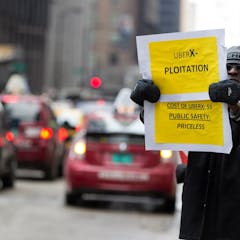
Articles sur Cities
Affichage de 1181 à 1200 de 1511 articles

Bigger cities increase wages, output and innovation, but also problems of congestion and pollution. Congestion charges can minimise these problems by dramatically improving traffic flows.

With the one-city format no longer viable, an Olympics expert proposes a radical new vision for the format of the Olympic Games. It actually makes a lot of sense.

Not only do healthy, well-maintained trees provide shade and benefit the ecosystem, they can have a meaningful social impact: people in newly greened neighbourhoods start to look out for each other.

What’s in store for key policy areas, from health to education to infrastructure to asylum seekers, under a returned Coalition government?

What did the Coalition promise during the campaign in 11 key policy areas, from health to infrastructure to jobs?

Have you thought about usable space, re-engineering, structural integrity, contamination, insulation and comfort? If not, you need to before jumping into building a home from shipping containers.

Uber actively encloses what could be a more open city in which riders and drivers work to benefit city residents.

Millions of people need to be confident that suitable public toilets will be available when they leave their homes. A shortage of such facilities is a serious problem for an ageing population.

From music festivals to motor racing –commercial events are taking over public parks. Here’s what can be done.

Green and cool (reflective) roofs are effective tools for cooling overheated cities. Research in Chicago shows that their impacts depend on local conditions, so planners should site them carefully.

Brexit campaigners connected with voters who felt left behind – and won.

It’s critical to protect London’s European connections from Brexit’s isolationism - could independence be the way forward?

City-centric thinking arguably obscures connections between ‘humans’ and ‘nature’, and ‘urban’ and ‘rural’ or ‘wild’. Growing evidence of the depths of these links is testing the concept of ‘urban’.

The Coalition, Labor, and the Greens are making substantial commitments to projects that not only lack proper business cases, but are not even on the Infrastructure Australia priority list at all.

Once again, Londoners are calling for the city to become independent: could it really happen?

Without long-term solutions to the imbalance between incomes and house prices, Gen Ys face a lifetime of renting without the financial and emotional security of home ownership.

Value capture is touted as a way to fund infrastructure, but what actually is it?

The 2016 articulation of an urban agenda assumes building more highways, railways and trams will produce better, more productive cities that somehow give everyone a job.

Edo, which gave rise to Tokyo, was also the world’s largest city three centuries ago. Facing ecological collapse, Edo developed a culture and practices that supported sustainable living.

Forget the main stage headliners, the real festival heroes might be selling you crocodile burgers and mango smoothies.
